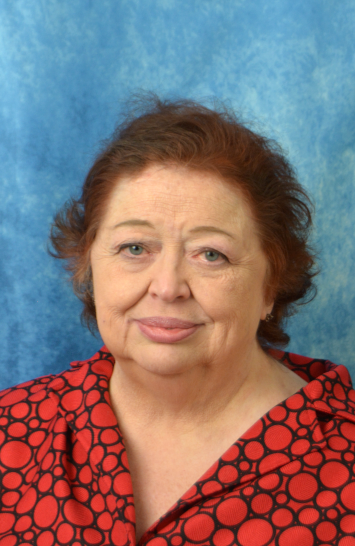
Priscilla Ryder
Associate Professor, Department of Clinical and Administrative Sciences
M.P.H., Ph.D.
Office: 2302
Phone: 305-760-7492
Email: PRyder@larkin.edu
Hours: By Appointment
Education and Training
- Ph.D.Epidemiology. University of Maryland School of Medicine, Baltimore, MD
- Postgraduate Fellowship, Peter Lamy Center on Drug Therapy and Aging, University of Maryland Baltimore College of Pharmacy, Baltimore, MD
- Certified in Public Health (CPH), National Board of Public Health Examiners, Washington, DC
- M.P.H. Epidemiology and Biostatistics, University of California at Berkeley, Berkeley, CA
- B.A. Cellular/Molecular Biology and Women’s Studies, San Francisco State University, San Francisco, CA
Teaching Interests
Dr. Ryder has taught pharmacy students and others about public health, research methods, and health disparities.
Scholarly Interests
Dr. Ryder has been a health researcher for nearly 30 years, focusing on health disparities, and healthcare access and utilization, especially for underserved populations and mature and older adults.
I am a mixed-methods researcher (quantitative and qualitative), with interests in health status and health utilization of mature and older adults, especially in medically-underserved populations. Specific topics include health disparities, HIV prevention, meanings of medications and medication adherence, and social/administrative pharmacy education.
Publications
- Zuckerman IH, Steinberger EK, Ryder PT, Haines S. Herbal product use among anticoagulation patients. Am J Health Syst Pharm. 2002,59(4):379-80.
- Arnsberger P, Fox P., Ryder P., Nussey B., Zhang X., & Otero-Sabogal R. Timely follow-up among multicultural women with abnormal mammograms. Am J Health Behav. 2006,30(1):51-61.
- Zuckerman IH, Ryder PT, Simoni-Wastila L, Shaffer T, Sato M*, Zhao L, Stuart B. Racial and ethnic disparities in treatment of dementia among Medicare beneficiaries. J Gerontol B Psychol Sci Soc Sci. 2008,63(5):S328-33.
- Ryder PT, Wolpert BJ*, Orwig D, Carter-Pokras OD, Black SA. Complementary and alternative medicine use among older urban African Americans: Individual and neighborhood associations. J Natl Med Assoc. 2008, 100(10):1186-92.
- Simoni-Wastila L, Ryder PT, Zuckerman IH, Qian J*, Zhao L, Shaffer T*. Association of antipsychotic use and hospital events and mortality for Medicare beneficiaries residing in long-term care facilities. Am J Geriatr Psychiatry 2009, 17(5):417-27.
- Ryder PT, Joseph M*, Zuckerman M*, Zuckerman IH. Administrators’ perceptions of medication management in assisted living facilities: Results from focus groups. Consult Pharm. 2009,24(7):513-23.
- Meyerson, BE, Ryder PT, Smith CR Achieving pharmacy based public health: Call for public health engagement. Public Health Reports 2013, 128(3):140-143. DOI : 10.1007/s10461-013-0427-y)
- Meyerson, BE, Ryder PT, Von Hippel CDJ*, Coy KC*. We can do more than just sell the test: Pharmacist perspectives about over the counter rapid HIV tests. AIDS and Behavior 2013,17(6): 2109-2113DOI 10.1007/s10461-013-0427-y
- Ryder, PT, Meyerson, BE, von Hippel, CDJ*, Coy, KC*.Pharmacists’ perspectives about HIV testing in community pharmacies. Journal of the American Pharmacists Association.2013, 53(6): 595-600.DOI 10.1331/JAPhA.2013.1224
- Meyerson B, Emetu R, Sanders S, Bailey M, Ryder P, Armstrong J. Preferences of Gay and Bisexual Men for Pharmacy-based HIV Testing and Over-the-Counter HIV Tests LGBT Health DOI: 10.1089/lgbt.2014.0010 Published online ahead of print June 3, 2014.
- Richey Smith CE, Ryder P, Bilodeau A, Schultz M. Use of an Online Game to Evaluate Health Professions Students’ Attitudes toward People in Poverty. American Journal of Pharmaceutical Education. 2016 Oct 25;80(8):139.
- Agley J, Meyerson BE, Shannon DJ, Ryder PT, Ritchie K, Gassmann R. Using the hybrid method to survey U.S. pharmacists: Apply lessons learned to leverage technology. Research in Social and Administrative Pharmacy 1 Jan 2017 13(1): 250-252.
- Smith CR, Ryder PT, Blais M, Schneck R. Evaluation of Two Different Poverty Simulations with Professional Phase Pharmacy Students. Currents in Pharmacy Teaching and Learning. 2017 Sept; 9(5) 903-910.

